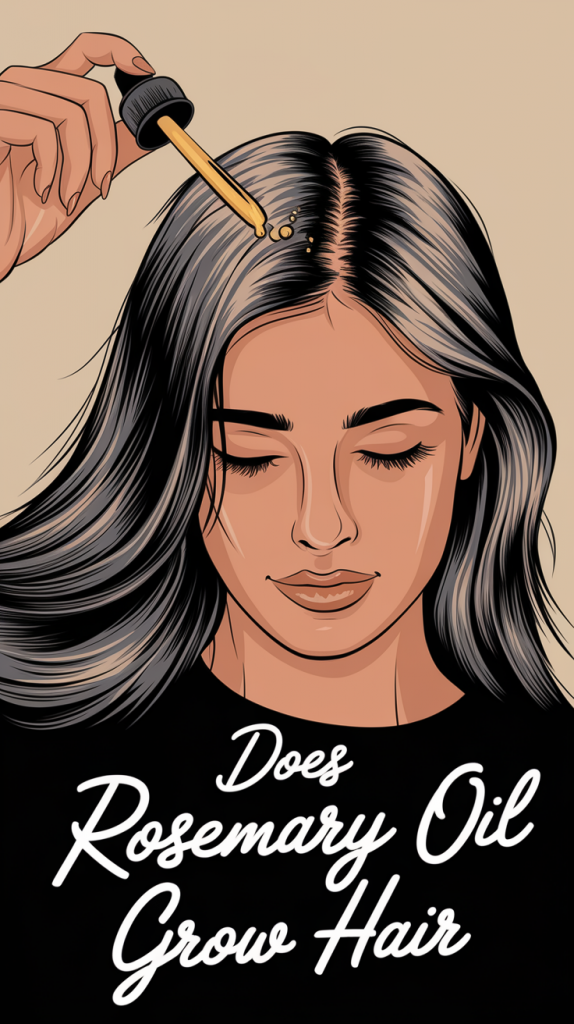Does Rosemary Oil Grow Hair?
Hair loss can be an overwhelming experience. At one point, I personally found myself searching for natural solutions after experiencing thinning hair, and one remedy that stood out to me was rosemary oil. Its reputation as a powerful natural remedy for hair growth has sparked curiosity worldwide. But does it actually work? Let’s explore the science, practical applications, and benefits to uncover the truth.
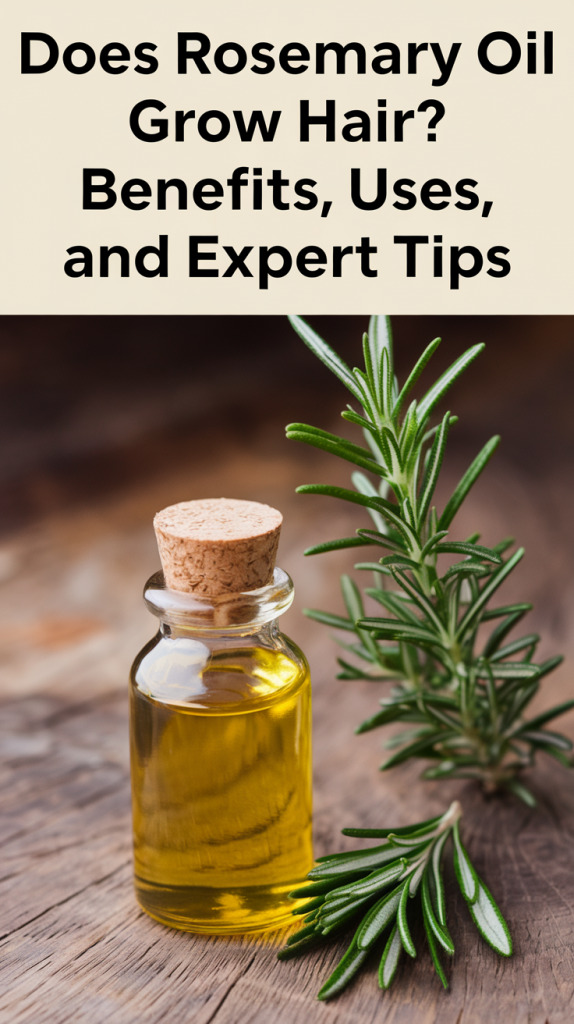
How Does Rosemary Oil Promote Hair Growth?
Benefits of Rosemary Oil for Hair Growth
Rosemary oil works through several key mechanisms to promote healthier and stronger hair. On my journey to combat hair thinning, I discovered these core benefits:
Improves Scalp Circulation
Massaging rosemary oil into the scalp increases blood flow, ensuring hair follicles get the oxygen and nutrients they need to thrive. This boost in circulation can lead to thicker, more resilient hair.
Inhibits DHT Production
Dihydrotestosterone (DHT), a hormone linked to hair thinning, can shrink hair follicles over time. Rosemary oil may act as a natural DHT blocker, preserving the integrity of hair follicles.
Reduces Inflammation and Microbial Growth
Rosemary oil’s anti-inflammatory and antimicrobial properties soothe scalp conditions like dandruff and irritation, creating a healthier environment for hair to grow.
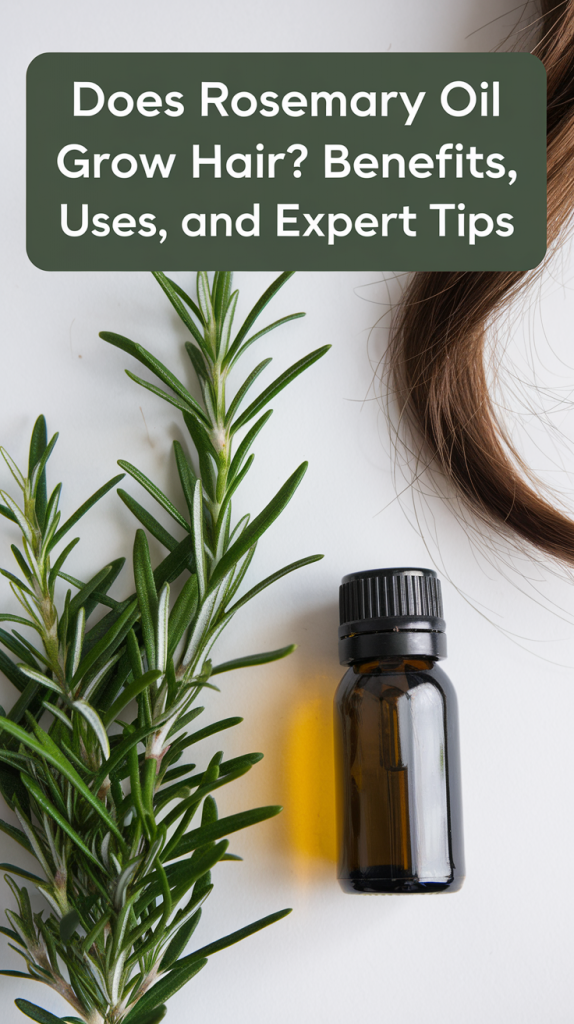
Benefits of Rosemary Oil
| Benefit | How It Works |
|---|---|
| Improved Scalp Circulation | Boosts oxygen and nutrient delivery to hair follicles for thicker growth. |
| DHT Inhibition | Prevents hair follicle shrinkage linked to hormonal hair loss. |
| Anti-Inflammatory Properties | Reduces scalp inflammation caused by dandruff or irritation. |
| Antimicrobial Effects | Cleanses the scalp of bacteria and fungi that block hair follicles. |
The Science Behind Rosemary Oil
If you’re anything like me, you probably want proof before committing to a new hair growth routine. Thankfully, rosemary oil has some solid scientific backing.
Key Studies on Rosemary Oil
- 2015 Study: Rosemary oil was compared to minoxidil (a well-known hair growth treatment). After six months, participants using rosemary oil experienced similar hair regrowth with fewer side effects like itching.
- Animal Studies: In a 2013 study, rosemary extract encouraged hair growth in mice with hormone-induced hair loss, suggesting its potential as a natural DHT inhibitor.
- Microbial Benefits: Another study demonstrated rosemary oil’s ability to reduce microbial activity on the scalp, a factor that indirectly promotes hair health.
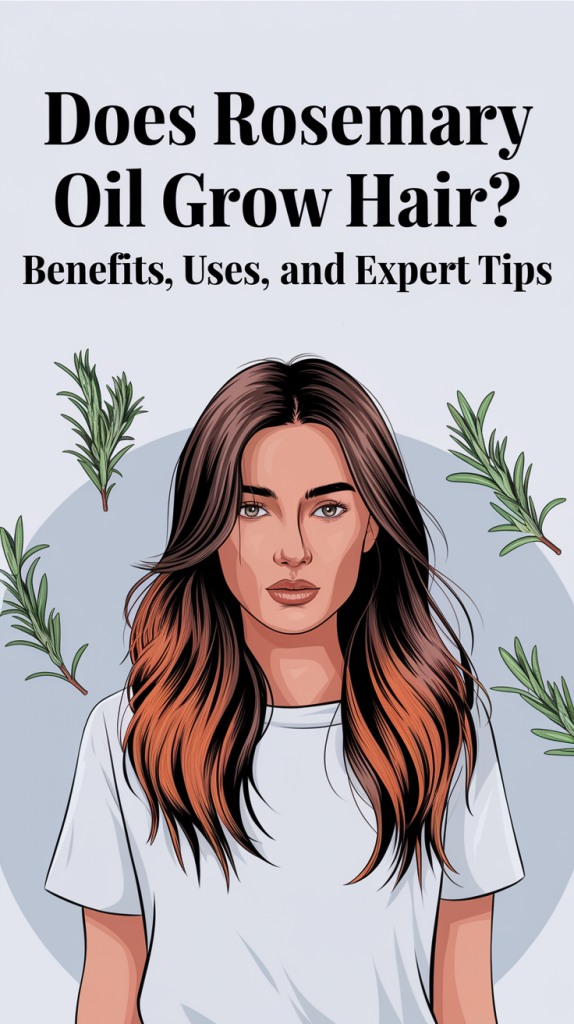
How to Use Rosemary Oil for Hair Growth
Adding rosemary oil to your hair care routine doesn’t have to be complicated. In fact, I’ve found some easy, practical methods that fit seamlessly into daily life.
Methods for Using Rosemary Oil
Scalp Massage
Mix 3-5 drops of rosemary oil with a carrier oil (such as coconut or jojoba oil). Massage into the scalp for 5-10 minutes, focusing on areas with thinning hair. Leave it on for 30 minutes or overnight before rinsing.
Shampoo Booster
Add 5-10 drops of rosemary oil to your favorite shampoo or conditioner. This method is perfect for those who prefer a hands-off approach.
Rosemary Rinse
Brew a strong rosemary tea by steeping the leaves in hot water. Once it cools, use it as a final rinse after washing your hair.
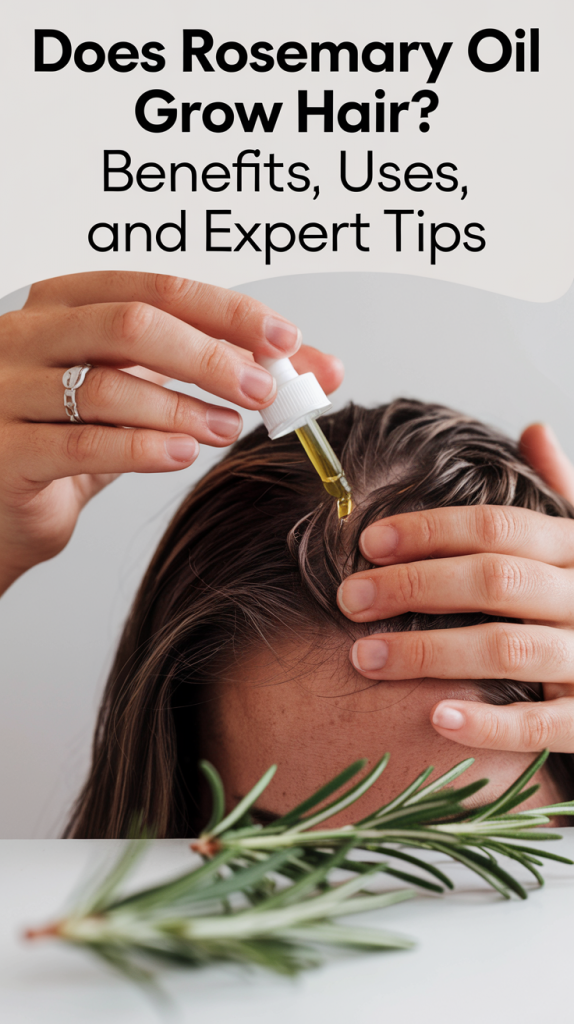
Rosemary Oil Application Methods
| Method | Steps | Frequency |
|---|---|---|
| Scalp Massage | Dilute with a carrier oil and massage into the scalp. | 2-3 times per week |
| Shampoo Booster | Mix with shampoo or conditioner. | Daily or as needed |
| Rosemary Rinse | Brew tea and apply to the scalp after shampooing. | Once a week |
Complementary Treatments
While rosemary oil works wonders, combining it with other treatments can amplify its benefits. Personally, I’ve tried some of these combinations with great success:
- Biotin Supplements: Strengthens hair and nails.
- Scalp Microneedling: Enhances absorption of rosemary oil.
- Healthy Diet: Focus on protein, vitamins, and iron for optimal hair growth.
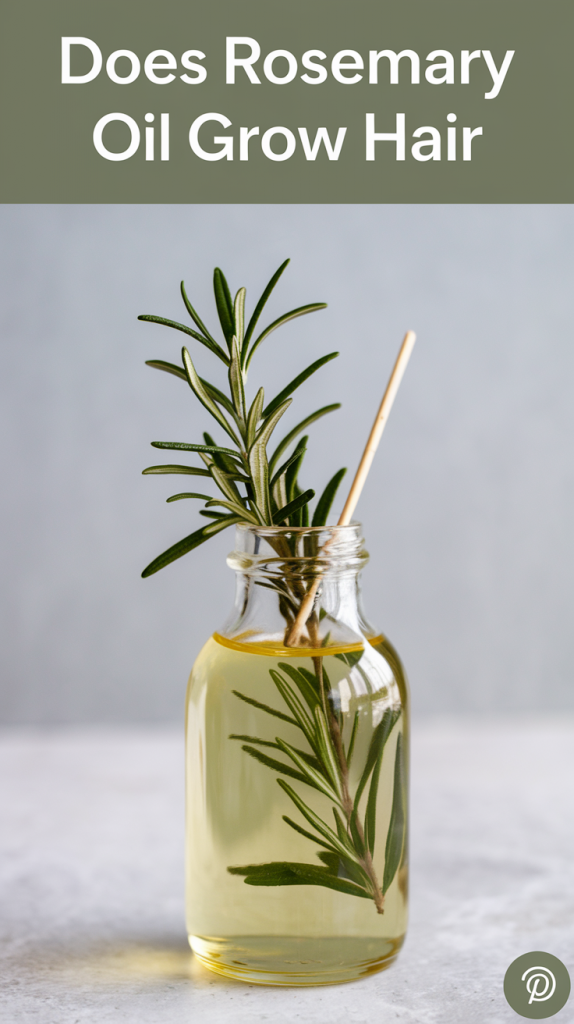
Addressing Common Misconceptions
As with any natural remedy, there are myths surrounding rosemary oil that need debunking:
- Myth: Rosemary oil works instantly.
Truth: Like all hair growth treatments, rosemary oil requires consistent use over several months to see noticeable results. - Myth: It works for all types of hair loss.
Truth: While effective for androgenetic alopecia and general thinning, rosemary oil may not resolve autoimmune-related hair loss or medical conditions.
FAQs About Rosemary Oil and Hair Growth
1. Can I use rosemary oil daily?
Yes, but dilute it properly to avoid irritation. Regular use of 2-3 times a week is sufficient for most people.
2. How long does it take to see results?
Consistent use over 3-6 months typically yields noticeable improvements in hair density and growth.
3. Can rosemary oil help with dandruff?
Absolutely! Its antimicrobial and anti-inflammatory properties combat dandruff and promote a healthier scalp.
4. Is rosemary oil suitable for all hair types?
Yes, rosemary oil is versatile and works for all hair types, from straight to curly.
5. Can pregnant women use rosemary oil?
Consult your healthcare provider before use during pregnancy or breastfeeding.
6. Can I mix rosemary oil with other oils?
Yes, combining it with oils like lavender or peppermint enhances its benefits.
Conclusion
On my personal hair care journey, I’ve discovered that rosemary oil is a versatile and effective remedy for promoting hair growth. Whether you’re dealing with hormonal hair loss, thinning, or scalp issues, rosemary oil offers a natural, affordable solution. While it takes time and consistency, the results are worth the effort. So why not give it a try? Incorporate it into your routine today and witness the difference firsthand.
